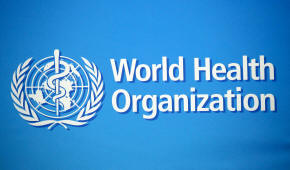WHO funding plan watered down after U.S. calls for reform - draft
document
 Send a link to a friend
Send a link to a friend
 [April 21, 2022]
By Francesco Guarascio [April 21, 2022]
By Francesco Guarascio
BRUSSELS (Reuters) - A planned funding
overhaul aimed at strengthening the World Health Organization (WHO) has
been partly watered down, according to an internal document seen by
Reuters, after pressure from the United States and other donor
countries.
The WHO is currently funded mostly by voluntary contributions from
governments and private donors, a set-up that the U.N. agency and
independent panels of experts have said is unsustainable as the
organisation faces new challenges, including higher risks of pandemics.
In a bid to reduce the agency's reliance on donations with strings
attached, a WHO working group proposed in January to increase mandatory
contributions to the agency's budget.
But after criticism from several donors, including the United States,
rises in mandatory fees have now been tied to reforms meant to make the
U.N. body more efficient and transparent, according to the WHO's
internal document.
The U.N. agency said the draft reform was still subject to changes and
may not necessarily entail strict conditions for payment rises.

Under the original proposal, member states' mandatory fees would rise
gradually from 2024 so they would account for half the agency's $2
billion core budget by the 2028-29 biennium, compared to less than 20%
now.
That payment rise would allow the WHO to have a more stable stream of
funding. That, in turn, was expected to make the body more independent
and efficient, by reducing its reliance on voluntary donors whose
contributions are usually linked to health goals set by themselves,
according to supporters of the funding plan.
The United States, which pays the WHO's highest membership fee in line
with its larger economy, has questioned the WHO's funding proposal, and
pushed for G20 countries to invest in a separate fund for pandemic
prevention and preparedness, hosted at the World Bank.

[to top of second column]
|

A logo is pictured at the World Health Organization (WHO) building
in Geneva, Switzerland, February 2, 2020. Picture taken February 2,
2020. REUTERS/Denis Balibouse
 Washington has not said whether it
supports the 50% increase in mandatory fees, which would cost the
U.S. $240 million a year by 2029. It has however openly called for
the WHO to become more efficient and improve the way it is run
before any funding overhaul.
After months of talks, negotiators have now prepared a compromise
text, according to the document seen by Reuters.
The new draft, dated April 11, makes the increase in mandatory fees,
or assessed contributions, conditional on governance reforms.
A first rise in fees would be introduced for the
2024-2025 budget, but two successive budget increases necessary to
bring mandatory fees to 50% of the total by 2029 would come only
after reforms to improve efficiency.
"The principle here is that in return for a greater investment by
Member States in terms of AC (Assessed Contributions), the
Secretariat would have to demonstrate a greater return in terms of
value for money," the draft document says, referring to the WHO's
executive body.
This may mean that if no governance reforms were adopted, the WHO's
mandatory budget would increase less than the planned 50%.
The WHO was working on a roadmap document that would indicate the
milestones, including on more spending transparency, needed to
improve governance and unblock funds, it said.
The reform document and the WHO roadmap will be discussed by
negotiators next week. The funding overhaul is to be turned into a
formal proposal for the annual meeting of WHO's decision-making body
in May.
(Reporting by Francesco Guarascio @fraguarascio; Additional
reporting by Jennifer Rigby; Editing by Nick Macfie)
[© 2022 Thomson Reuters. All rights
reserved.] This material may not be published,
broadcast, rewritten or redistributed.
Thompson Reuters is solely responsible for this content. |